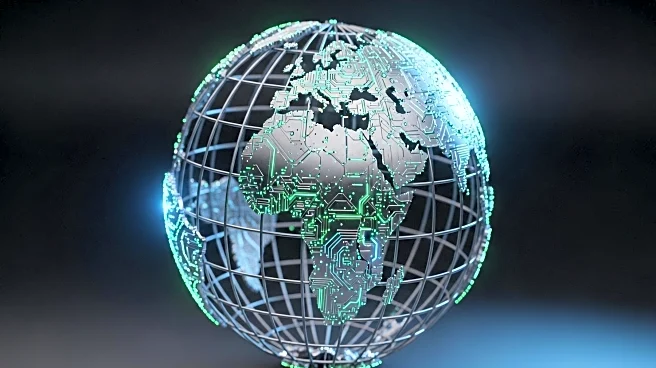What's Happening?
The European Union is coordinating with the United States and other G7 partners to respond to China's tightened controls on rare earth mineral exports. China, the largest producer of rare earths, expanded its export controls last week, affecting elements crucial for semiconductor production. European Trade Commissioner Maros Sefcovic described these measures as unjustified and a critical concern during a meeting in Denmark. The EU ministers are considering a united response, emphasizing the need for cooperation with the US to pressure China into fair practices. Previous controls by China in April led to global shortages, impacting industries such as automotive manufacturing.
Why It's Important?
Rare earth minerals are essential for various industries, including technology and automotive sectors. China's expanded controls could lead to significant disruptions in global supply chains, affecting production and economic stability. The EU and US alliance aims to mitigate these impacts by diversifying supply sources and accelerating joint projects for mineral extraction and processing. This collaboration could strengthen geopolitical ties and enhance economic resilience against China's trade policies. Industries reliant on rare earths stand to benefit from a coordinated response, potentially reducing dependency on Chinese exports.
What's Next?
The EU and US are likely to engage in discussions with G7 finance ministers to explore options for addressing China's export controls. Sefcovic plans to speak with his Chinese counterpart, while the EU considers advancing joint projects to diversify supply. The potential for tariffs remains a contentious issue, with President Trump threatening 100% tariffs on Chinese goods, which could lead to further economic tensions. The EU favors open discussions with Beijing to resolve the situation diplomatically.
Beyond the Headlines
The situation highlights the strategic importance of rare earth minerals in global trade and the potential for geopolitical shifts. The EU and US collaboration could lead to long-term changes in supply chain strategies, reducing reliance on single-source suppliers. Ethical considerations regarding resource extraction and environmental impacts may also arise as countries seek alternative sources.











